
Dark Tree's Southern California archive series adds this phenomenal session from multi-woodwind player Vinny Golia's Wind Quartet with clarinetist John Carter, trombonist Glenn Ferris, and cornetist Bobby Bradford, recorded fairly early in their careers in 1979 live at Century City Playhouse in LA for two sets of exploratory, dexterous and astounding jazz.
Out of Stock
Quantity in Basket: None
Log In to use our Wish List
Shipping Weight: 3.00 units
Sample The Album:
Vinny Golia-woodwinds
John Carter-clarinet
Bobby Bradford-cornet
Glenn Ferris-trombone
Click an artist name above to see in-stock items for that artist.
UPC: 3473351000086
Label: Dark Tree Records
Catalog ID: DT(RS)08
Squidco Product Code: 25213
Format: CD
Condition: New
Released: 2017
Country: France
Packaging: Cardboard Gatefold
Recorded at the Century City Playhouse, Los Angeles, California, on May 13th, 1979, by Bruce Bidlack.
"This was one of the earlier albums in the lengthy and impressive career of multi-reedist and composer Vinny Golia. On this album he plays a wide range of instruments including flute, alto flute, piccolo flute, baritone saxophone, clarinet and bass clarinet and he is accompanied by John Carter on clarinet, Bobby Bradford on cornet and Glenn Ferris on trombone. With the lineup solely composed of reeds and brass, the music can produce a wide range of textures and dynamics that draws from classical and world music as well as jazz.
This album was recorded live in May of 1979 in Los Angeles, California. Golia alternates between flute and baritone saxophone on the opening track "#2," and it is the demonstrative difference between these two instruments that provides the push and pull, the friction that drives the performance. The deep and brawny baritone and the light and nimble flute serve as a framework and an instigation for the other instruments to add their contributions. The collective improvisation is very impressive, the musicians fly in tight formation and then separate to make their own individual statements with the brass punching forward and the flute, clarinet and saxophone swooping and soaring over the course of a lengthy improvisation. You get a sense of the enjoyment of exploring the unexpected corners of music on "Views" the first of three lengthy performances, each around fifteen minutes in length.
Golia sticks with the baritone saxophone on this performance and it makes for some very interesting textures with the relatively low toned baritone and trombone providing marked contrast to the cornet and clarinet. Golia has a serious graphic arts background, and he allows the improvisation to develop like a painter, spreading bold swathes of color around the soundscape. Carter and Bradford co-led a famous group and they bring their familiarity and thirst for adventure into this configuration. Moving into the second set of the performance, they take on a massive two-pronged performance, "Chronos, Parts I & II" which demonstrate all of the musicianship that this very impressive band has to offer. Both of these selections are over fifteen minutes in length but the music never seems padded or forced. On part one, Golia juxtaposes the high pitched piccolo flute with the dark and reverberating bass clarinet. Part two sees him moving to alto flute along with bass clarinet, leading the charge through the meat of this recording allowing themes to bubble up and be met with powerful extrapolations by each member of the band. Dedicating the final track "The Victims" to the heroic South African activist Steve Biko, demonstrates a deeply humanist streak from the musicians and their playing.
This album as a whole shows great compassion for the musicians, their creations and their audiences. This was a very enjoyable and challenging recording that deserves wide attention."-Tim Niland, Jazz and Blues Blogspot

The Squid's Ear!
Get additional information at Jazz and Blues Blogspot
Artist Biographies
• Show Bio for Vinny Golia "As a composer Vinny Golia (born March 1, 1946) fuses the rich heritage of Jazz, contemporary classical and world music into his own unique compositions. Also a bandleader, Golia has presented his music to concert audiences in Europe, Canada, Mexico, Japan, Australia, New Zealand and the United States in ensembles varying dramatically in size and instrumentation. Mr. Golia has won numerous awards as a composer, including grants from The National Endowment of the Arts, The Lila Wallace Commissioning Program, The California Arts Council, Meet the Composer,Clausen Foundation of the Arts, Funds for U.S. Artists and the American Composers Forum. In 1982 he created the on-going 50 piece Vinny Golia Large Ensemble to perform his compositions for chamber orchestra and jazz ensembles. A multi-woodwind performer, Vinny's recordings have been consistently picked by critics and readers of music journals for their yearly "ten best" lists. In 1990 he was the winner of the Jazz Times TDWR award for Bass Saxophone. In 1998 he ranked 1st in the Cadence Magazine Writers & Readers Poll and has continually placed in the Downbeat Critic's Poll for Baritone & Soprano Saxophone. In 1999 Vinny won the LA Weekly's Award for "Best Jazz Musician". Jazziz Magazine has also named him as one of the 100 people who have influenced the course of Jazz in our Century. In 2006 The Jazz Journalists Association honored him with a Lifetime Achievement Award. Golia has also contributed original compositions and scores to Ballet and Modern Dance works, video, theatrical productions, and film. As an educator Vinny has lectured on music & painting composition, improvisation, Jazz History, The History of Music in Film, CD & record manufacturing and self-production throughout the United States, Europe, Mexico, New Zealand and Canada. He currently teaches at California Institute of the Arts. In 1998 Golia was appointed Regent's Lecturer at the University of California at San Diego. In 2009 Vinny Golia was appointed the first holder of the Michel Colombier Performer Composer Chair at Cal Arts. Vinny has been a featured performer with Anthony Braxton, Henry Grimes, John Carter, Bobby Bradford, Joelle Leandre, Leo Smith, Horace Tapscott, John Zorn, Tim Berne, Bertram Turetzky, George Lewis, Barre Phillips, The Rova Saxophone Quartet, Patti Smith, Harry "the Hipster" Gibson, Eugene Chadburne, Kevin Ayers, Peter Kowald, John Bergamo, George Gruntz Concert Jazz Band, Misha Mengelberg, Han Bennick, Lydia Lunch, Harry Sparrney and the Los Angeles Philharmonic Orchestra amongst many others." ^ Hide Bio for Vinny Golia • Show Bio for John Carter "John Wallace Carter was born in Fort Worth, Texas, on September 24, 1928, and was a childhood friend of Coleman and drummer Charles Moffett. He earned a bachelor's degree in music education from Lincoln University in Jefferson City, Missouri in 1949, and a master's degree from the University of Colorado in 1956. He taught in public schools in both Fort Worth then moved Los Angeles in 1961, where, with Coleman's encouragement he formed a band, the New Art Jazz Ensemble (NAJE), with trumpeter Bobby Bradford in 1964. Carter conducted orchestral versions of Coleman's work at UCLA in 1965, and he was initially a follower of the saxophonist's "harmolodic" approach to composition and improvisation. On the NAJE's 1969 album Seeking, he demonstrates great facility on alto and tenor saxophones, as well as clarinet. The NAJE continued as a group until 1974 and released a total of four albums on the Revelation and Flying Dutchman labels. After the NAJE disbanded Carter played clarinet exclusively, and progressively came into his own voice as an improviser and composer. In the late 1970s, he played in a group called Wind College with flutist James Newton and bassist Red Callender, and was the subject of a documentary, The New Music: Bobby Bradford and John Carter in 1980. He played at clubs and festivals in Europe and the United States, both as a leader and as a sideman, with groups that frequently included Bradford, Newton, and Roberto Miguel Miranda. In the 1980s he led the clarinet quartet Clarinet Summit, with Alvin Batiste and Jimmy Hamilton and with David Murray on bass clarinet. As an improviser, Carter came to share affinities with the work of other free-jazz clarinetists, such as Perry Robinson and Theo Jörgensmann. In the 1980s, Carter focused increasingly on composition, starting with Dauwhe, an octet he recorded in 1982. The piece would become the first part of Roots and Folklore, and reveals his evolving approach to both instrumentation and creative improvisation. With focused interplay and overlapping of tones and ideas, Carter's clarinet takes an omnipresent position. Carter and Bradford's musical relationship was not unlike that of Coleman and Cherry in their pianoless quartet. In this setting, Carter and Bradford embrace the composition's pastoral, evocative voices of tribal Africa while the sleekness and idiosyncratic horns swirl like apparitions above the manic, even brooding rhythm. Both experimental, yet familiar, Dauwhe augurs many of the ideas Carter later explored in the remaining volumes of his history: clashing cultures, forces of myth and predation, lust, and unadulterated beauty amid the chaos. Neither free music nor swing, this album shows elements of both, and has layers of ensemble work similar to massive conductions of Butch Morris. Carter's compositions, intriguing in their varied instrumentation, draw on the folk wisdom of country blues, the sophisticated dances of swing, the figured bass of bebop, and the violent clashes of free jazz, all combined in careful doses. The five parts of Roots and Folklore explore deep feelings about the African diaspora, starting with Dauwhe, named for an African goddess of happines. This is followed by meditations on imprisonment in Castles of Ghana, the middle passage on Dance of the Love Ghosts, chattel slavery on Fields, and the youthful exuberance of Harlem between the World Wars in Shadows on a Wall. The works vary in instrumentation, and are both expressionistic and impressionistic. Carter employed equal parts roots and folklore in his explorations of African-American historyhis attachments to what came before looks forward in both style and quality of style. Carter's work is articulate and allows for a sinister wilderness to penetrate even his most designed pieces, all of which are a statement about Africans who became African-Americans, and the immense losses in between. John Carter, recorded the final chapter of Roots in 1989, and died of lung cancer in Los Angeles on March 31, 1991." ^ Hide Bio for John Carter • Show Bio for Bobby Bradford "Bobby Lee Bradford (born July 19, 1934) is an American jazz trumpeter, cornetist, bandleader, and composer. He is noted for his work with Ornette Coleman. In October 2009, Bradford became the second recipient of the Festival of New Trumpet Music's Award of Recognition. Bobby Lee Bradford's life begins in Mississippi, he and his family then moved to Dallas, Texas, in 1946. He moved to Los Angeles, California in 1953 where he reunited with Ornette Coleman, whom he had previously known in Texas. Bradford subsequently joined Coleman's ensemble, but was drafted into the U.S. Air Force and replaced by Don Cherry. After playing in military bands from late 1954 to late 1958, he rejoined Coleman's quartet from 1961 to 1963, which infrequently performed in public, but was indeed recorded under Coleman's Atlantic contract. Quite unfortunately, these tapes were among those many destroyed in the Great Atlantic Vault Fire. Freddie Hubbard acted as Bradford's replacement upon his departure to return to the West Coast and pursue further studies. Bradford soon began a long-running and relatively well-documented association with the clarinetist John Carter, a pairing that brought both increased exposure at international festivals (though the records remain scantily available, when one excludes web rips and bootlegs). Following Carter's death in 1991, Bradford fronted his own ensemble known as The Mo'tet, with which he has continued to perform since. He is the father of drummer Dennis Bradford. He is also the father of jazz vocalist Carmen Bradford. He holds a B.M. degree from Huston-Tillotson College (now Huston-Tillotson University) in Austin, Texas. In addition to Coleman, Bradford has performed with Eric Dolphy, Leon "Ndugu" Chancler, Ingebrigt HŚker-Flaten, Bob Stewart, Charlie Haden, George Lewis (trmbn.), James Newton, Frode Gjerstad, Vinny Golia, Paal Nilssen-Love, and David Murray, who was previously a student of his in the 1970s. He is an instructor at Pasadena City College in Pasadena, California, and Pomona College in Claremont, California, where he teaches The History of Jazz, known to be one of the most popular classes available." ^ Hide Bio for Bobby Bradford • Show Bio for Glenn Ferris ^ Hide Bio for Glenn Ferris
12/17/2025
Have a better biography or biography source? Please Contact Us so that we can update this biography.
12/17/2025
Have a better biography or biography source? Please Contact Us so that we can update this biography.
12/17/2025
Have a better biography or biography source? Please Contact Us so that we can update this biography.
12/17/2025
Have a better biography or biography source? Please Contact Us so that we can update this biography.
Track Listing:
1. #2 11:34
2. Views 14:45
3. Chronos I 15:08
4. Chronos II 15:18
5. The Victims (For Steve Biko) 07:12
Improvised Music
Jazz
Free Improvisation
West Coast/Pacific US Jazz
Quartet Recordings
Woodwinds
Staff Picks & Recommended Items
Top Sellers for 2018 by Customer Sales
Search for other titles on the label:
Dark Tree Records.

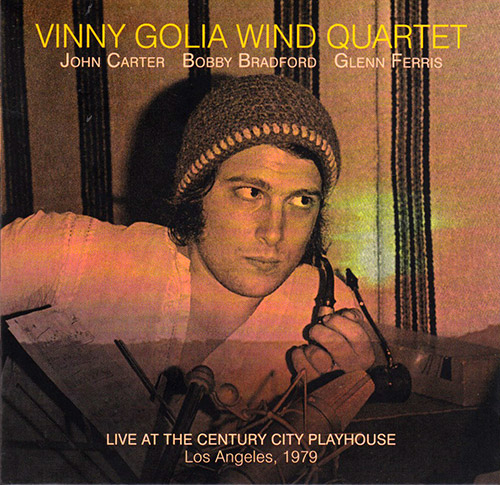

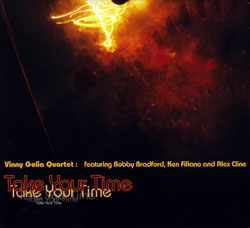
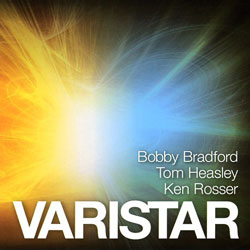
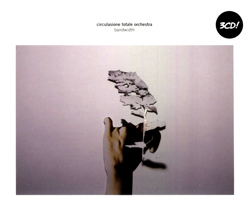

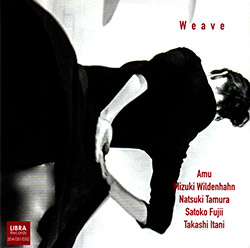
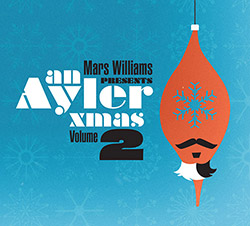
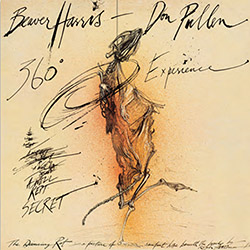

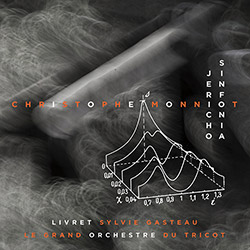

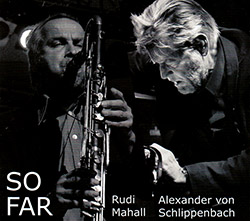
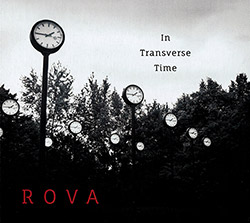

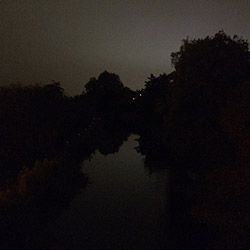

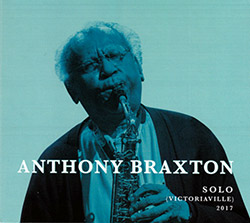
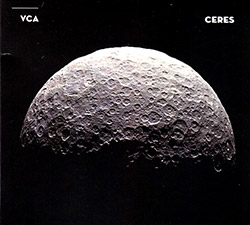
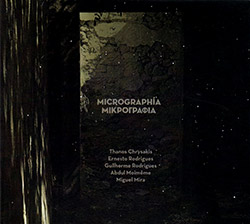





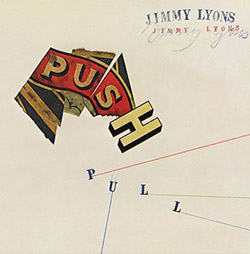
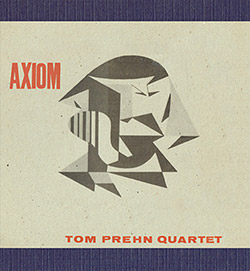

![HobbyHouse (Mia Dyberg / Axel Filip): HobbyHouse [CD + DOWNLOAD]](https://www.teuthida.com/productImages/misc4/36944.jpg)
![Mines, Kelsey / Erin Rogers: Scratching At The Surface [CD + DOWNLOAD]](https://www.teuthida.com/productImages/misc4/36945.jpg)
![Nebbia, Camila (feat/ Marilyn Crispell / Lesley Mok): A Reflection Distorts Over Water [CD + DOWNLOAD]](https://www.teuthida.com/productImages/misc4/36946.jpg)
![Vanheerentals, Adia: Taking Place [CD + DOWNLOAD]](https://www.teuthida.com/productImages/misc4/36947.jpg)
![Mines, Kelsey / Vinny Golia: Collusion and Collaboration [CD + DOWNLOAD]](https://www.teuthida.com/productImages/misc4/36948.jpg)
![Parkins, Zeena: Lament For The Maker [CD + DOWNLOAD]](https://www.teuthida.com/productImages/misc4/36949.jpg)
![Evans, Peter / Mike Pride : A Window, Basically [CD + DOWNLOAD]](https://www.teuthida.com/productImages/misc4/36950.jpg)


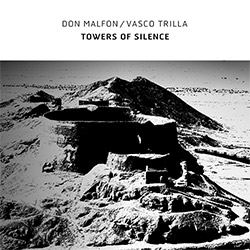
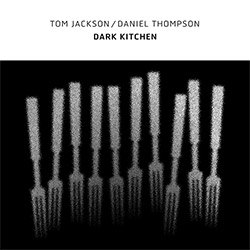
![Frey, Jurg : Composer, Alone [3 CDs]](https://www.teuthida.com/productImages/misc4/36927.jpg)
![Belorukov, Ilia / Alex Riva: Wrestling For Futility [CASSETTE w/DOWNLOAD]](https://www.teuthida.com/productImages/misc4/36994.jpg)
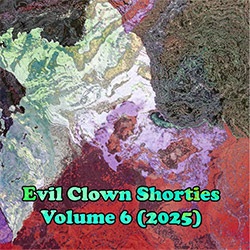
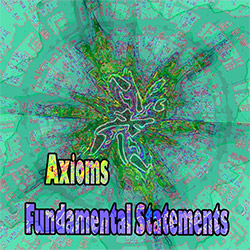










![Agnel, Sophie: Learning [VINYL]](https://www.teuthida.com/productImages/misc4/36841.jpg)

![Monaco, Amanda (w/ Michael Attias / Sean Conly / Satoshi Takeishi) : Deathblow [VINYL+ DOWNLOAD]](https://www.teuthida.com/productImages/misc4/36956.jpg)
![Frey, Jurg with ensemble]h[iatus: Je Laisse A La Nuit Son Poids D](https://www.teuthida.com/productImages/misc4/36988.jpg)
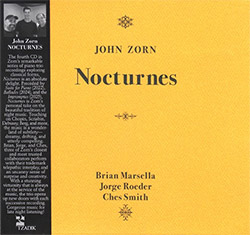
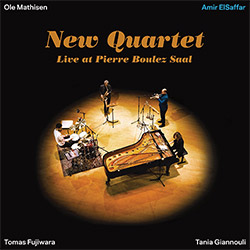
![ElSaffar, Amir / New Quartet : Live at Pierre Boulez Saal [VINYL]](https://www.teuthida.com/productImages/misc4/36830.jpg)

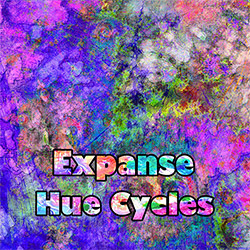
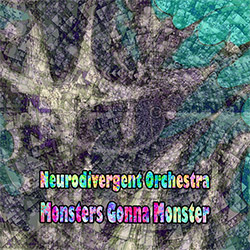
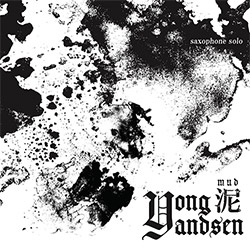

![Musicworks Magazine: #152 Fall 25 [MAGAZINE + CD]](https://www.teuthida.com/productImages/misc4/37004.jpg)
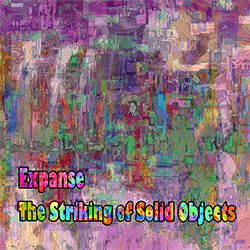




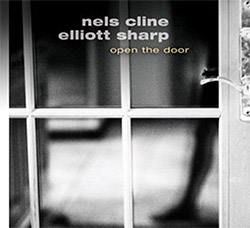
![[ahmed] (Thomas / Grip / Gerbal / Wright): Sama](https://www.teuthida.com/productImages/misc4/36976.jpg)

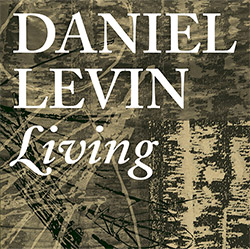
![Cleaver, Gerald / Brandon Lopez / Hprizm: In The Wilderness [COLOR VINYL]](https://www.teuthida.com/productImages/misc4/33060.jpg)
![McPhee, Joe : Defiant Jazz: a Joe McPhee Taster [VINYL]](https://www.teuthida.com/productImages/misc4/36859.jpg)
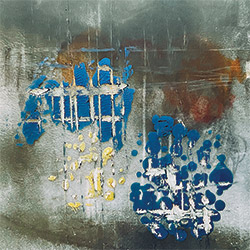
![Mateen, Sabir / Patrick Holmes / Federico Ughi : Survival Situation [LTD VINYL LP + DOWNLOAD]](https://www.teuthida.com/productImages/misc4/29891.jpg)
![Tucker, Dave / Pat Thomas / Thurston Moore / Mark Sanders: Educated Guess Vol. 1 [COLORED VINYL]](https://www.teuthida.com/productImages/misc4/30183.jpg)
![Sarian, Michael / Matthew Putman: A Lifeboat (Part I) [COLORED VINYL]](https://www.teuthida.com/productImages/misc4/30426.jpg)

![Genthon, Anouck / Lionel Marchetti: Suite Blanche [2 CDs]](https://www.teuthida.com/productImages/misc4/36642.jpg)
![Toeplitz, Kasper T.: Erosions Programmees [CD + BOOKLET]](https://www.teuthida.com/productImages/misc4/36639.jpg)
![Gate, The : Amost Live [CASSETTE + MAGAZINE]](https://www.teuthida.com/productImages/misc4/36836.jpg)






![A Magic Whistle: The Solar Cell [VINYL]](https://www.teuthida.com/productImages/misc4/36658.jpg)

![McGee, Hal: Columbus Expedition [Cassette w/ Download]](https://www.teuthida.com/productImages/misc4/36650.jpg)


![Jaeger, Kassel: Fernweh [VINYL 2 LPs]](https://www.teuthida.com/productImages/misc4/36541.jpg)





![+DOG+: The Light Of Our Lives [2 CDs]](https://www.teuthida.com/productImages/misc4/36009.jpg)


![Eternities: Rides Again [CASSETTE]](https://www.teuthida.com/productImages/misc4/36247.jpg)

![Lopez, Francisco: Untitled (2021-2022) [2 CDs]](https://www.teuthida.com/productImages/misc4/36438.jpg)





![Pisaro-Liu, Michael: Within (2) / Appearance (2) [2 CDs]](https://www.teuthida.com/productImages/misc4/36831.jpg)










![Musicworks Magazine: #151 Summer 25 [MAGAZINE + CD]](https://www.teuthida.com/productImages/misc4/36559.jpg)

![Brown, Dan / Dan Reynolds: Live At The Grange Hall [unauthorized][CASSETTE]](https://www.teuthida.com/productImages/misc4/36245.jpg)


![Zorn, John: The Song of Songs [CD + CD BOOK]](https://www.teuthida.com/productImages/misc4/36923.jpg)

![Coultrain: Mundus [COLORED VINYL]](https://www.teuthida.com/productImages/misc4/33056.jpg)
![Hprizm: Signs Remixed [COLORED VINYL]](https://www.teuthida.com/productImages/misc4/30635.jpg)
![Halls Of the Machine: All Tribal Dignitaries [CASSETTE w/ DOWNLOAD]](https://www.teuthida.com/productImages/misc4/36134.jpg)



![Koenjihyakkei: Live at Club Goodman [2 CDs]](https://www.teuthida.com/productImages/misc4/36111.jpg)

![Sorry For Laughing (G. Whitlow / M. Bates / Dave-Id / E. Ka-Spel): Rain Flowers [2 CDS]](https://www.teuthida.com/productImages/misc4/35985.jpg)

![Rolando, Tommaso / Andy Moor : Biscotti [CASSETTE w/ DOWNLOADS]](https://www.teuthida.com/productImages/misc4/36106.jpg)


![Electric Bird Noise / Derek Roddy: 8-10-22 [CD EP]](https://www.teuthida.com/productImages/misc4/35970.jpg)








![Elephant9 : Mythical River [VINYL]](https://www.teuthida.com/productImages/misc4/34624.jpg)



![Elephant9 with Terje Rypdal: Catching Fire [VINYL 2 LPs]](https://www.teuthida.com/productImages/misc4/35355.jpg)
![Coley, Byron: Dating Tips for Touring Bands [VINYL]](https://www.teuthida.com/productImages/misc4/17906.jpg)

![Lost Kisses: My Life is Sad & Funny [DVD]](https://www.teuthida.com/productImages/misc4/lostKissesDVD.jpg)